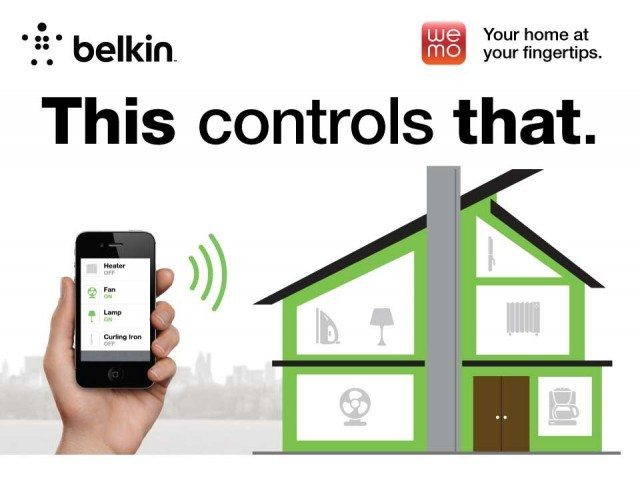 |
|
Courtesy PhotoImage |
 |
|
Courtesy PhotoImage Deb Fischer |
Today, “smart” phones connect people to the Internet, wherever they happen to be.
A person can see and send all kinds of pictures, quotes, comments and news articles to friends and acquaintances with the touch of a finger on the smart phone screen (assuming their smart phone is working fine.)
Other remote devices can tell who is at your front door, even if you are on vacation. With a smart phone, you can remotely change the temperature at your house and turn the lights on and off.
Remote cameras keep watch on your property and your loved ones, transmitting pictures and information to the “cloud” – mega-storage areas (data-centers) — where it waits for you to look it up on your smart phone or home computer.
Business are becoming more interconnected and automated then ever before.
At the new Great Plains Health in North Platte, the movement of supplies for each patient is automatically recorded. The computer realizes when an item is removed from the closet in the patient’s room, moving it from storage to “used” on the hospital’s record books (datasheets.)
Driverless car technology is in the works, with semi-trucks made in Germany that could be tested in the next couple of years on relatively open roads, such U.S. Highway 83.
Imagine a future with a lot more of that.
Imagine an internet of things.
The Internet of Things, which is “IoT” in initials, goes beyond baby monitors, security cameras, thermostats or even automatic brakes on automobiles, which are applied when a car gets too close to an object in front.
Manufacturers are using “IoT solutions” to track materials that move around inside their factories. The IoT is used to consolidate control rooms.
Increased automated analysis leads to automatic preventative maintenance. Machines talk to machines.
More and more, robots will continue to replace manual labor, management and oversight.
Voice activated robots are becoming more prominent in sales and support, not only placing phone calls to see if a buyer is interested in a product, or fielding phone calls from customers who need advice and/or instructions. Those robotic voices are becoming indistinguishable from human voices.
It’s all good for business and profits. Revenues are up nearly 30 percent for manufacturers that utilize the Internet of Things, according to a 2016 report in Business Insider magazine.
Ergo, much more of the IoT is on the horizon.
However, privacy threats are enormous, as is the potential for social control and political manipulation, professor and author Philip N. Howard said in a 2015 article in Politco magazine.
Smart grids, intelligent transportation and smart cities are envisioned.
Some estimates indicate that more than 50 billion devices will be connected in five years or less.
Each “thing” is uniquely identifiable through an embedded computing system and is able to communicate with people as well as with other things, within the existing Internet infrastructure.
On the positive side, Howard also said the IoT offers immense potential for empowering citizens, making government transparent and broadening information access.
A year ago, Sen. Deb Fischer of Nebraska joined three of her colleagues to introduce a bipartisan bill addressing the future impact of the “Internet of Things.”
The bill sets out a national strategy for framing the IoT to make it do-able, safe and secure as it grows.
The bill establishes a working group comprised of cabinet-level federal departments, regulators, business leaders and consumer protection groups.
Fischer wants to work with “America’s innovators to improve outdated regulations and update our laws so that this growth can continue aiding our growing economy.”
The bill aims to create a modern framework, recognizing the importance of consensus-based best practices and the need for innovators to drive future development, Fischer said.
The IoT is expected to streamline government operations as well as businesses.
The study will find what is need for the spectrum to operate well, and will look at:
• The current use of technology by federal agencies
• Preparations to adopt it in the future.
• The regulatory environment.
• Consumer protection.
• Privacy and security.
A year ago, federal authorities argued with Apple that the FBI should be allowed to hack a cell phone that allegedly belonged to a terrorist killer in San Bernadino, Calif. Apple defended the right of their customer’s privacy, saying if the code was released to allow the FBI to look at the cell phone, the code could be leaked and jeapordize the privacy of other customers.
The FBI eventually came up with a way to access the cell phone on its own, but the issue illuminated the concern that private information could be routinely hacked, opening the data of the Internet of Things to enemies, crippling people, if not the entire nation.
Editorials at Wired magazine, a publication about the latest in technology, also express concern.
“What you’re about to lose is your privacy,” writer Geoff Webb warned in 2015. “Actually, it’s worse than that. You aren’t just going to lose your privacy; you’re going to have to watch the very concept of privacy be rewritten.”
In the last couple years, much thought has been given to how to make the IoT secure. For instance, passwords must be at the forefront of programming. Also, security biometrics might only allow access if your fingerprint or retinal eye pattern matches the one you have placed on file.
Fischer’s bill, calling for a high-level review of the IoT, made little progress in 2016, but on Monday, more than a year since it was introduced, she expressed hope that it will move along this year.
Fischer said the bill has bipartisan support. It was co-introduced by a Democrat, Sen. Sen. Cory Booker of New Jersey, who happens to be a vegan, in contrast to Fischer, who lives on a cattle ranch. No matter, Fischer said, when it comes to dealing with the Internet of Things.
The bill’s sponsors call on the U.S. to “clear obstacles for the people who will make us that world leader” in IoT.
She said, “Those people work in Lincoln, Nebraska, in the Haymarket District, and in Omaha’s Old Market — two cities where the tech industry is doing so well it’s called “Silicon Prairie.” They are the innovators, inventors, programmers, coders, and restless dreamers who like to solve technical problems.”
The bill would give those innovators a forum to make their voices heard, but it would also help Congress identify problems: like regulatory silos, she said.
This report was first published in the March 2, 2016 print edition of the North Platte Bulletin. It has been updated.







